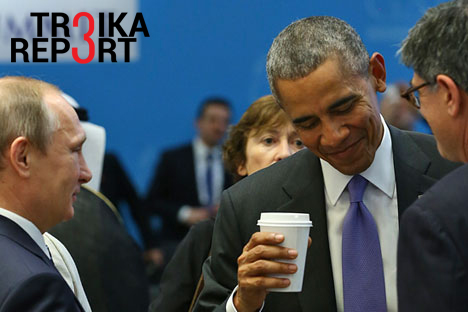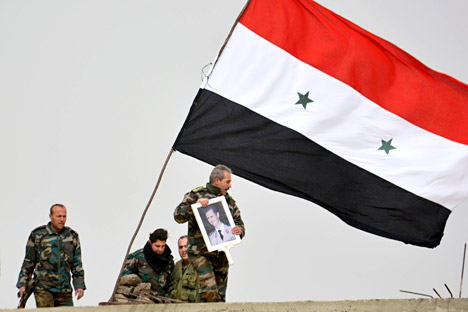Syria breakthrough: An end to the slaughter in sight?

Exodus: thousands ofrefugees are stillfleeing conflict in Iraq,Syria, Afghanistan andother countries.
Getty ImagesForeign ministers and representatives from 20 countries agreed a road map to peace in Syria in Vienna on Nov. 14. With the terrorist attacks in Paris the night before giving the second round of talks fresh urgency, there was agreement on setting up a transitional government within six months and elections within 18 months.
As positive as that result is, the success of subsequent rounds of talks to resolve a bitter civil war that has claimed the lives of more than 310,000 people over the past four years depends on the ability of the parties to achieve a balance of mutual interests.
“No one is lying to themselves about the difficulties we are facing but the determination to find a solution has progressed in the 14 days since the first round of talks,” said German Foreign Minister Frank-Walter Steinmeier.
Whether President Bashar al-Assad has a role to play in the future of Syria – a key Russian demand – remains a sticking point. Many in the international community see his departure as a precondition for progress.
John Kerry, the U.S. Secretary of State, said the “political process has to be accompanied by a ceasefire. That will help to end the bloodshed as quickly as possible.”
He added: “This war cannot end so long as Bashar al-Assad is there.”
Diplomats plan now to meet again in December and bring the Syrian government and opposition representatives together by 1 January next year.
Here, RBTH explains the interests of the main regional players, gauging where their main red lines lie.
Russian agenda
According to the official Kremlin line, its primary interest in the Syrian campaign is to weaken and destroy Islamic State (ISIS). Russian President Vladimir Putin says that Russia intends to "fight and destroy the militants and terrorists on the territories they already occupy and not wait until they come to our house." This suggests he believes they are a direct threat to the former Soviet Central Asian republics and to the indigenous Muslim population in Russia. Although Moscow became involved militarily in the Syrian conflict only after it became clear ISIS was turning into an uncontrollable threat, some believe the Russian bombing was triggered because Assad was cornered.
ISIS is not the only threat Moscow wants to extinguish. Ivan Timofeev, program director at the Russian International Affairs Council, says: "The aim of the Russian operation is to help end the civil war, which is turning Syria into a failed state, a gray zone of world politics and a refuge for all kinds of terrorists and extremists."
At the same time the Kremlin has its own pragmatic interests, notes Dmitri Abzalov president of the Center for Strategic Communications. By supporting Assad, Russia is trying to strengthen its international positions and demonstrate to its real and potential allies and partners the reliability of Russian guarantees. Moreover, it is important for Russia to show its military and political capabilities in carrying out local anti-terrorist operations and, for the first time since the Cold War, bring its foreign to a global level.
Analysts say this will stop Assad's opponents pushing Moscow to back away from Syria, since what is at stake is Russia's claim to a great-power role. A global agenda also gives the Kremlin room for maneuver; it is ready to make local concessions that do not contradict its wider aims - for example, to discuss the options for Assad's legitimate departure or conduct a dialogue about Syrian federalization.
No change in U.S. strategy
America's initial enemy in Syria was Assad's authoritarian regime and Washington's strategy continues to be the removal of Assad by supporting the secular opposition, says Dmitri Suslov, deputy director of the Center for Comprehensive and International Studies at Moscow's Higher School of Economics. And even though the appearance of ISIS - a by-product of the fight against Assad - makes this strategy practically unrealizable, Washington cannot change it. But ISIS is now the key threat. Alexei Malashenko, of the Scientific Council at the Moscow Carnegie Center, says the U.S. has not only agreed with the Kremlin that "Assad's regime is the true alternative to the Islamists," but has also acknowledged Russia's right "to carry out military activities and, broadly speaking, the legitimacy of its military-political presence in the Middle East."
"Russia's unilateral military operation in Syria has become yet another symptom of America's weakening role as the stabilizing factor in the Middle East," writes former U.S. Secretary of State Henry Kissinger, calling this operation "a challenge that America's Middle East policy has not faced for at least four decades."
Saudi symbolism
Saudi Arabia is playing tough at the Vienna talks. "For Riyadh the Assad issue has a good deal of symbolism. If Saudi diplomacy fails in Syria, the Arab world will consider it a strategic victory for Teheran and will doubt Saudi Arabia's guarantees in confronting Iranian expansion in the region," says Leonid Isaev, an Arabic scholar and professor at the Higher School of Economics. Moreover, Riyadh negatively views the American-Iranian dialogue and the invitation to Iran to participate in the Vienna talks. In the opinion of Henry Kissinger (in the same article), the American-Iranian nuclear deal is seen in the Middle East as a symbol of the U.S. agreeing to Iranian hegemony.
For Iran, control of Syrian territory basically has an existential nature, says Matthew McGuinness, a former senior Iran analyst at the U.S. Armed Forces Central Command. If Assad loses the civil war and a Sunni regime comes to power, then a cordon sanitaire from Azerbaijan to Kuwait will stretch along Iran's western border and Iranian-controlled Iraq, depriving the Iranians of the Levant and the Mediterranean Sea. That is why Teheran is the main sponsor of Assad's regime, supplying him with money, weapons and even fighters. At the same time Iran is not ready for full-scale support of Assad and sending, for example, an expeditionary force, since that risks a regional war between the Sunnis and the Shiites.
Recognizing its limited possibilities, Teheran is ready for constructive dialogue. Vladimir Sazhin, a senior research associate at the Russian Academy of Sciences Institute of Middle East Studies, says the Ayatollah may agree to the formation of a temporary coalition government with Assad as transitory president. Moreover, Iran is ready to discuss the federalization of the country, provided there are concrete guarantees on preserving the rights of religious minorities and Syria's territorial integrity.
Turkish lines
Turkey's position on Syria is still determined by the most painful problem for Ankara: the Kurdish issue. Local Kurdish militias have already gained control of a number of northern Syrian towns. Analysts do not rule out the possibility of the creation of an independent Kurdish state in the region, which would act as a base for Kurdish separatism in Turkey. After President Tayyip Erdogan's ruling Justice and Development Party (AKP) increased its majority after the general elections November 1, a resurgent AKP will "stress that it is the only force in Turkey capable of fighting terrorism," says MGIMO professor and Turkey expert Vladimir Avatkov.
Get most interesting stories every Wednesday
All rights reserved by Rossiyskaya Gazeta.
Subscribe
to our newsletter!
Get the week's best stories straight to your inbox

